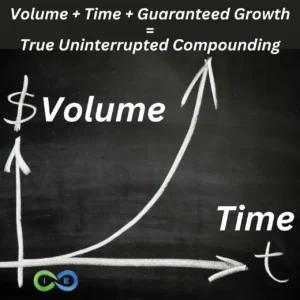The following article on deals with cashing out a 401k. There are many advantages and disadvantages to this decision and you need to weigh each option to make sure it is the right decision for you.
After all, there are many 401k pros and cons that you need to consider when deciding on whether or not taking money out of your 401k is the right choice for you.
Should You Cash Out Your 401K?
The typical financial advice works something like this. You give all your money to big banks and Wall Street and then sit tight a few decades.
After 30 years or so you can have access to your money but only in small increments.
The most common retirement plan used today is the 401(k), which might not be the “retirement solution” it is propped up to be.
Even Ted Benna, the man known as the “father of the 401k” (1), strongly disapproves of what it has turned into.
So, the question becomes, should you cash our your 401(k)?
The decision to do so is not as straight forward as a simple yes or no answer.
Just know, there are disadvantages as well as some advantages, to cashing out of your 401k early. We touch on the top 10 pros and cons below.
Pros of Cashing Out Your 401(k) Early
Emptying your 401k through cashing it out or taking out a 401k loan may make sense, but it is important to consider the pros and cons of cashing out your 401k early.
The following 7 benefits to cashing out your 401(k) or other qualified plans need to be weighed in proportion to the drawbacks, so that you can make the best financial decision for you, based on your unique goals and objective.
1. Fees:
Your 401k contains management and administrative fees. Among the various fees are record keeping fees, investments costs, advisory service fees, 12-b1 fees and individual service fees that account for up to 2% in annual 401k fees. (2)
2. Limited Options:
Your primary investment options are typically mutual funds. You are not given a lot of choices to work with. Generally, you are forced to chose between some sort of mutual fund or money market account.
3. Deferred taxes:
Your money is not taxed going into your 401k plan. Rather, you get to pay Uncle Sam taxes when you withdraw from your 401k someday in the future.
And your 401k withdrawals are taxed as ordinary income.
Now, if you believe taxes are going down then deferring taxes today to pay less tax in the future makes sense.
However, did you know that the top tax rate in the 40s, 50s and 60s was as high as 90%? In fact, the top tax bracket did not drop below 50% until 1987. (3)
So, still think you will pay less in taxes in the future?
The reality is you will most likely pay more taxes on your dollars in the future, so deferring your taxes now might not be in your best interest.
4. Restricted Access:
Your plan has many rules and restrictions that let you know what you can do with “your” money.
In fact, you cannot use funds to start a business or purchase a second home.
So, consider the opportunity cost of not being able to use your money as you want as it sits in 401k jail.
5. Inefficient 401(k) loans:
When you take out money through a 401k loan you are borrowing money that was tax deferred, but when you replace those dollars you must use after tax dollars.
Those same dollars you use to pay back your 401k loan will be taxed again when you finally withdraw them down the road.
Now, that can mean a 25%, 28%, 35% or more automatic loss!
To prevent this, you should always have adequate liquid savings and/or assets that can be borrowed against without tax consequences, such as cash value whole life insurance.
6. Political uncertainty:
Think your 401k plan is safe? Think again. The 401k plan is government controlled.
Where do you think Congress will look for extra money if things take a turn for the worst?
7. Consumer debt:
Investing before you have ample savings leads to poor financial decisions, such as getting into credit card debt. Interest rates will eat away at your finances faster than your 401k can keep pace with.
Rather than get into more and more debt, why not free up your money and start building your emergency fund? One of the best ways to do this is to consider the benefits of using life insurance as your own bank.
Cons to Cashing Out Your 401(k) Early
So we have just reviewed the advantages to cashing out your 401k, now how about the disadvantages. Before pulling your money out of any tax-deferred qualified plan, consider the following:
1. Penalties and Taxes:
Early withdrawals will most likely include taxes and penalties. Be prepared to pay a 10% penalty on top of your ordinary income tax on any gains.
2. When to Pull the Trigger:
Liquidating your 401k requires that you close out your current investments. If the market has tanked then you may find your investments have dropped substantially.
Ideally, you want to take money out before the market drops. Unfortunately, no one has figured out how to time the market, so there is no surefire way of knowing when to exit your positions.
3. Alternative Savings:
If you have determined that the best route for you to take financially is to close out your qualified plan, do you have an alternative place to store your money, such as permanent life insurance that builds cash value?
The last thing you want to do is close your plan without having an alternative plan. What will most likely occur is you will end up with no savings left after you spend through the money you just withdrew.
The bottom line: have a plan in place so you avoid the temptation of spending your newfound money.
Solving the 401(k) Problem
The sad fact is that money education is severely lacking in our culture. Giving your dollars to Wall Street for decades, with no guarantees of actual performance, only to be accessed at age 59 1/2 without penalties, serves Wall Street and not you.
Financial education, which includes concepts such as the velocity of money and financial leverage, are not taught. Rather, we are programmed to forego all responsibility and stewardship of our money and hand it off to others.
As Keith Weinhold of Get Rich Education fame likes to say,
“People spend all this time at their job learning how work works, they don’t spend any time learning how money works, but yet money is the main reason they go to work.”
The sad truth is there are two educations offered in the country, the education for the rich vs the poor.
You have to seek out new ways and paradigms, rather than trust the tired advice of the so-called financial gurus.
The cards are stacked against you, particularly if you swallow the typical financial planning model that is full of poor advice, such as buy term and invest the difference.
Financial planners and the media have a vested interest in making sure you follow along like a good sheep should.
Opportunity Fund
If you are like most people, you do not have much in terms of liquid assets that can be accessed for things like emergencies or opportunities.
More than half of Americans have less than $1,000 in a savings account. (4)
If people have money it is typically in some sort of restricted account, like a 401k.
This poses an increased risk of not having money available if an emergency occurs. Having money in savings allows you to maintain control of your money, preparing you for emergencies and opportunities that come your way.
Time to Re-Think Our Investing Paradigms
Nowadays, people’s ideas of what constitutes an investment usually is limited to stocks, bonds and mutual funds. It is a very narrow view, particularly when there are many other opportunities available.
For example, wealth building strategies with real estate offer the potential to provide significantly higher returns, particularly when you understand the tax incentives exclusive to real estate investing.
In contrast, a 401k has limited investment options. But we have been conditioned to equate “investments” with the limited options a salesperson at a brokerage house or bank might give us. We’re conditioned to equate healthy returns with higher risk.
We’re conditioned to expect that we’ll inevitably lose money sometimes.
Next Steps
Just know that you have options outside of the main stream financial advice offered by those with a vested interest in getting as much of your money for as long as possible.
Give us a call today for your complimentary strategy session.
Please note: This article is co-copyrighted ©Prosperity Economics Movement and ©Insurance and Estates Strategies LLC.






8 comments
tiffany black
i need to cash out my 401k
Insurance&Estates
Hi Tiffany, a great first step is to connect with one of our experts. To request a call, go ahead and email Barry Brooksby at barry@insuranceandestates.com.
Best, Steve Gibbs for I&E
Brian
My car just broke down on me and the mechanic says it’ll cost me $3,600 to fix it. The car is almost paid off in the next few months. Would it be wise for me to borrow from my 401k to either get the repairs done or use the 401k as down payment for another vehicle. Or just don’t borrow at all? Please help
Insurance&Estates
Hello Brian and thanks for reading. It sounds like you need advice from your 401(k) account administrator. There are always issues when withdrawing or borrowing from a qualified account that must be carefully considered. This is why we prefer high cash value life insurance.
Best, I&E
Michael
I am just 56 ,and 4 years ago I became disabled, I was a salesman and lost my voice to cancer of the vocal cords, so they took my voice box and now I breath through a hole in my neck ,and talk with an electro larynx. Should I take my 401k now and payoff some credit cards and a small loan , I am thinking of buying a travel trailer and a newer truck to tow it , So that my wife and I can take some time and enjoy life , and not have the expense of hotels or rental homes, campgrounds are about 1/3 the price of a hotel room per day
Insurance&Estates
Hello Michael, thanks for reading. You’re asking a question that would involve some in depth discussions and analysis with a financial and tax expert. I think your tax advisor may be a great place to start.
Best, Steve Gibbs for I&E
Kevin P. Hanley
I’m 64 and looking toward retirement in about 8 to 10 months. Not feeling real secure about my 401k based on current financial scares. Would like to speak to someone on other options.
Insurance&Estates
Hello Kevin, thanks for reading and commenting. Your question has been forwarded to our National Sales Director Jason Herring who I believe already has or will shortly reach out to you.
Best,
Steve Gibbs for I&E